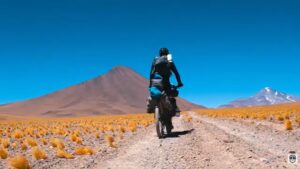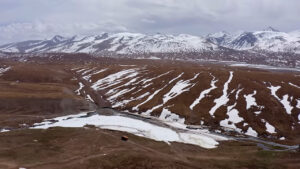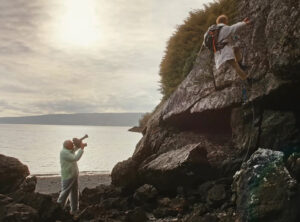West Africa is known for music and dance, not pumping surf breaks. But in the Ivory Coast, surf culture is on the rise. It’s the kind of culture that could eventually see it mentioned in the same breath as Pipeline, Nazaré, or South Africa’s J Bay.

Nazaré, Portugal.
A new scene
Our household conversations often turn to the hunt for epic waves. When we think of Africa, it’s usually J Bay that springs to mind. But that might be about to change. The Ivory Coast rolls out fast, hollow beach breaks best ridden with small, clean swells. In some places, beginners can find long peeling waves ideal for building confidence. All this without the traditional rules expected at Western breaks where grommets can be hustled off waves and give-way rules demonstrate respect.
Ivory Coast surf culture reminds me of the small Indonesian island, Nias. A few years ago, before Covid halted international exploration, my partner and I were fortunate enough to witness Nias surf culture. Just like in the Ivory Coast, locals surf using whatever they can find. Riding dubiously mended broken boards or unwanted boards abandoned by visiting tourists. The quality of the surfboard is not important.
World-renowned breaks like Pipeline demand attitude. But lesser-known spots encourage freedom. Freedom to give it a go no matter your ability. Locals cheer each other along in a unique camaraderie.
A new wave of talent
Though not understood by everyone, Ivory Coast’s surf culture is on the rise as more people get involved. It seems that it will only be a matter of time before the region produces a home-grown surf star. Down in South Africa, Mikey February proves practice and passion can lead to success and international recognition.
The Ivory Coasts’ surf scene looks like it is here to stay.






